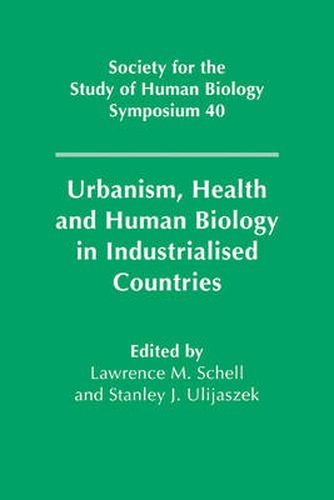Readings Newsletter
Become a Readings Member to make your shopping experience even easier.
Sign in or sign up for free!
You’re not far away from qualifying for FREE standard shipping within Australia
You’ve qualified for FREE standard shipping within Australia
The cart is loading…






Over seventy per cent of the population in industrialized nations live in cities; soon, so will most of the world’s population. This volume examines the impact of urban living on human health and biology. Cities pose numerous and diverse social and biological challenges to human populations which bear little resemblance to the forces that moulded human biology through millions of years of evolution. Urban populations in industrialized nations have distinctive patterns of behaviour, social stratification, stress, infectious disease, diet, activity and exposure to pollutants from years of industrialization. These features affect diverse aspects of human function including human nutrition, energy expenditure, growth and reproduction. This volume begins with an introduction to the history of urbanism and poverty, infectious disease, reproductive function, child health, nutrition, physical activity and psychosocial stress. The book will appeal to workers in urban planning, human biology, anthropology, preventative medicine, human ecology and related areas.
$9.00 standard shipping within Australia
FREE standard shipping within Australia for orders over $100.00
Express & International shipping calculated at checkout
Over seventy per cent of the population in industrialized nations live in cities; soon, so will most of the world’s population. This volume examines the impact of urban living on human health and biology. Cities pose numerous and diverse social and biological challenges to human populations which bear little resemblance to the forces that moulded human biology through millions of years of evolution. Urban populations in industrialized nations have distinctive patterns of behaviour, social stratification, stress, infectious disease, diet, activity and exposure to pollutants from years of industrialization. These features affect diverse aspects of human function including human nutrition, energy expenditure, growth and reproduction. This volume begins with an introduction to the history of urbanism and poverty, infectious disease, reproductive function, child health, nutrition, physical activity and psychosocial stress. The book will appeal to workers in urban planning, human biology, anthropology, preventative medicine, human ecology and related areas.